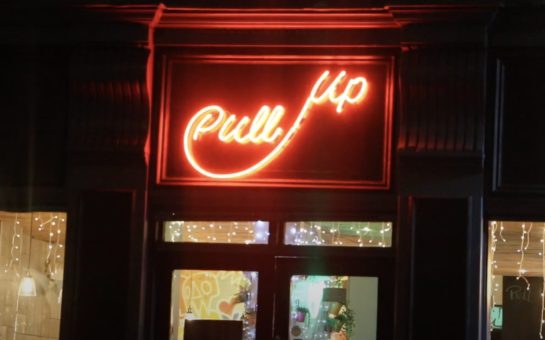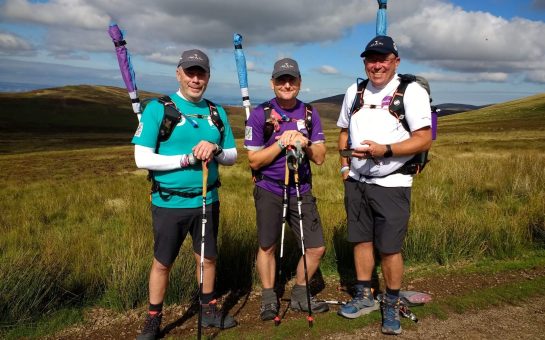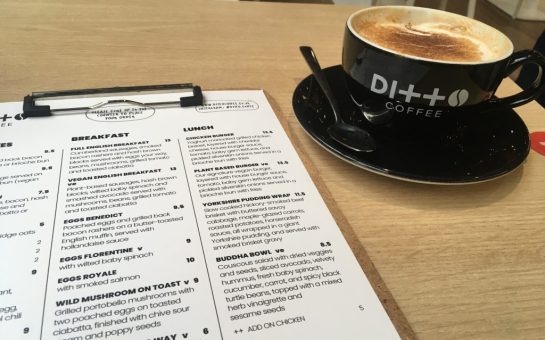As restrictions lift, life returns to Manchester’s vibrant café society. The Northern Quarter’s warren of coffee shops is buzzing, and the city air is rich once again with the scent of premium specialty brews.
Although some shops sadly haven’t survived the succession of lockdowns, the pandemic has not dented the demand for specialty coffee, which has steadily grown in the UK over the past few years.
There is nothing new about our love of meeting friends in places with tables and chairs where they also serve caffeinated refreshments. But our choice of beverage has evolved. Whereas once we were lucky to get a good brand of instant coffee, we can now choose from a whole blackboard of origin countries at (relatively) affordable prices.
The term ‘specialty coffee’ officially refers to coffee that is graded 80 points or above on a 100 point scale by a coffee taster certified by an organisation like the Specialty Coffee Association. However, it is possible to get a complex, high quality coffee that doesn’t quite make the grade but is still referred to informally as specialty.
Many coffee shops in the UK now pride themselves on serving specialty coffee – some even roasting the beans themselves on the premises – and the terms ‘specialty coffee’ and ‘ethically sourced’ often appear hand in hand in companies’ marketing spiel, because there is a growing demand for both from UK consumers.
Despite this, most coffee farmers still struggle to make the income they need to protect their crops from the triple threat of Covid-19, low prices for their beans and climate change.
Direct trade – when a roaster or seller buys coffee directly from the producer – is a model commonly used by specialty coffee shops, because with fewer middle-men, specialty sellers can be more certain of the quality of the product they are purchasing.
“The farmer is able to set the price they want to be paid, and gets a significantly greater proportion of the final amount that we would pay per kilo,” said Douglas Maitland, Head Roaster at ManCoco, a specialty shop and roastery in Manchester.
“It also provides us with a direct link to the farmer so we can talk to them about their coffee, be that about the processing they have for the coffee, what condition they grow the coffee, and provide us with information on any problems that might occur, such as the current frosts in Brazil.”
ManCoco does not entirely use direct sourcing, but they are working towards using it more. With consumers in the UK becoming increasingly thirsty for ethical as well as tasty coffee, it is likely that more and more UK coffee shops will follow suit.
“Every coffee shop needs to make money from a sale,” said Douglas. “Often unless that business has the initial mind-set of getting quality coffee that is properly sourced, it can end up looking principally at the price per kilo they are willing to pay, and if it is properly sourced is a secondary concern.
“For certain customers, knowing that the coffee that is being sold to them is ethically and sustainably sourced can mean a great deal to them.”
Direct trade is undoubtedly beneficial to the growers involved. But growing specialty coffee is expensive and requires a specific micro-climate, altitude, soil type and time of year, not to mention training, knowledge and equipment. There are also barriers to many smaller producers accessing specialty markets. It is therefore limited in the impact it can have on a wider scale.
There is a middle ground when it comes to quality. Fairtrade certified coffee for example is not necessarily specialty, but it does guarantee a certain level of quality and a higher price for the producer, as well as a premium of 25 percent to be invested by the producer into improving the quality and productivity of the coffee in the future.
According to the most recent available data from the Fairtrade Foundation, 824,404 tonnes of coffee was produced in 2019, enough to make over 86.5 billion espressos. Around 26 percent of this (218,162 tonnes) was sold on Fairtrade terms.
Fairtrade also provides a network of growers, coops and buyers. Individual coffee growers are much more able to access a good price for their product if they are part of this network than if they are going it alone.
“One way farmers can earn more is by selling specialty coffee, since it commands a higher market price,” said Emma Mullins, Senior Supply Chain and Programme Manager at the Fairtrade Foundation.
“Our local Fairtrade Producer Networks work alongside coffee cooperatives to help them improve the quality of their beans and access the speciality market.
“For instance, by providing training and technical assistance to farmers on best practice in production, harvest and coffee processing.”
Joao Mattos, Coffee Manager for the Latin American and Caribbean Network of Fair Trade Small Producers and Workers, helps to run the Fairtrade Golden Cup. This annual coffee competition allows producers to share their best coffees and exchange knowledge about improving quality, while also providing an opportunity for producers to foster relationships with buyers and customers.
“The Golden Cup is more than just a competition,” said Joao. “The main objective for the Golden Cup today is to create new space and new perspective on Fairtrade and quality to businesses, coops and customers.
“Market access is one big problem, because we work with small producers. It’s very complicated for a small producer to go directly to the market. The competition can give access to high quality coffee and high price to our small producers.”
It is clear that by buying ethically sourced or Fairtrade coffee, we as consumers can help farmers receive a premium price for their product, and usually supports farmers to invest in improving the quality of their product for the future.
But our power as consumers can only go so far.
“Smallholder coffee farmers across the world are facing a triple crisis,” said Emma. “Unsustainably low prices for their beans, the impacts of COVID-19 and devastating losses due to climate change.
“For instance, during 2020’s hurricane season in the Americas (the worst on record), Storm Eta alone is estimated have reduced Nicaraguan coffee crops by as much as 30 percent.”
The Fairtrade Foundation report, A climate of crisis: farmers, our food and the fight for justice, predicted that by 2050 as much as 50 percent of global land currently used for coffee farming may no longer be usable.
The report urges the government and UK businesses to ensure farmers overseas have the funds to adapt to the climate reality – including by ensuring they receive higher, fairer prices for their produce.
Fairtrade Foundation CEO Mike Gidney said: “Given that nearly half of the UK’s food comes from overseas, we all have a stake in ensuring future generations of farmers who produce our food can do so in climate-friendly ways, while earning enough to stay in business and live the sort of life their hard work deserves.
“It’s a scandal that millions of farmers still earn too little for their food crops. We can’t expect them to tackle the climate emergency if we won’t ensure they earn a decent income.”
Most farmers lack the resources they need to improve the quality of their coffee or gain access to lucrative markets. There is a healthy global demand for lower-quality coffee, but many of the farmers who produce this are not able to get a fair price.
“The average non-Fairtrade coffee farmer lives on as little as £1.37 a day,” said Emma. “Without higher, fairer incomes, farmers can’t afford to invest in production and quality improvements that are vital for boosting their incomes and accessing the tools to withstand threats like Covid-19 and climate change.”
The increased appetite for specialty, high quality and ethically sourced coffee has the potential to help some farmers – but it is only a small step towards a global coffee system that actually works for producers.
Photo: Fairtrade farmer Elizabeth Chepkwony, from the Kabngetuny Cooperative in Kenya, harvests coffee. Credit: Fairtrade International.



